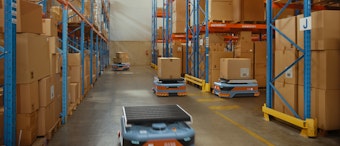
On October 17, 2018, the recreational use of marijuana became legal in Canada, opening the door to what is projected to become a CAD$7.0 billion market by 2020 (USD$5.45B) according toNew Frontier Data, a business analytics company that researches the cannabis industry.
And, despite the fact that marijuana is illegal at the federal level in the U.S., the cannabis market is budding—to say the least—as investors and growers throw money towards start-ups in the states where medical and recreational sales are legal.
According to the PMMI report,Here to Stay or Up in Smoke? A Look at the U.S. Cannabis Market,报告称,这些大麻公司目前雇用了约100,000至150,000名工人,主要是劳动密集型职位。这意味着,作为运营规模,这些公司将需要自动化。
I recently spoke with the co-founder of growerSoulshine Cannabis, who attended PACK EXPO in Las Vegas last year looking to find a weigh filling and packaging machine. Another cannabis company, Coastal Canna based in Maine, recently attended MJBizCon with a similar purpose of finding equipment that will help the small company escalate into the 5,000 sq. ft. grow room the company founders have set up as they await Maine law to lift the limit on the maximum number of plants the company can grow.
But it’s not just about small mom and pop shops as we are starting to see some large beverage companies—specifically alcohol—making investments.For example, Constellation Brands, based in Victor, N.Y., the parent company of signature beers Corona and Modelo, made a $4 billion investment in Canadian company Canopy Growth Corp., entrenching itself in the legal Canadian market and positioning itself for the U.S. market, when the time is right. Similarly, Denver-based brewer, Molson Coors Brewing Co., recently entered into a deal through its Canadian unit to develop cannabis-infused beverages.
Needless to say, automation suppliers and OEMs are taking notice. Still, cannabis is one of those areas that is fraught with confusion because, on one hand, the market is experiencing exponential growth which is enticing to anyone wanting to build new business. On the other hand, despite some U.S. state laws that allow medical and recreational marijuana use, it is illegal at the federal level and considered a Schedule 1 substance, defined as drugs with no currently acceptable medical use and high potential for abuse (heroin is on this list, too). Therefore, it is illegal to manufacture and sell under federal law, which puts all the of the people in the cannabis supply chain at risk—including the technology providers and the machine builders.
而且,在加拿大,大麻现在合法的地方,根据美国联邦法律,那些在美国在美国在美国开展业务的技术和设备供应商的赌注甚至更高,边境代理商质疑个人可以禁止人们进入该国,如果被发现他们正在与大麻公司合作。甚至有报道称,OEM高管被禁止生命,因为他们正在提供促进大麻产品生产的设备,因此他们被标记为贩毒者。
I recently reported a story forAutomation World’s姐妹出版物,OEM Magazine, called “Fertile Ground” to be published next month, that looks at some of the opportunities and obstacles machine builders face as they start selling equipment into this market. There is a lot to understand and even worry about, including accepting money from the customer, as financial and banking services are not allowed to work with plant-touching businesses. The same risks are there for automation suppliers who are working directly with the manufacturer, I would assume.
But, as one OEM said to me, the rewards outweigh the risks in this area, noting: “You want to get into this market when the time is right, and the time is right now.”
































